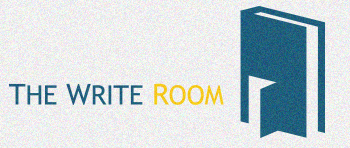

Eliminate Clichés
After you’re done writing, look for clichés. Take a phrase out if it is vogue (bottom-line), frequently used (finding ones’ self), predictable (cry like a baby), or ill-defined (few and far between). To eliminate clichés in your writing, identify them, and think about what you really wanted to say. Then say it in your own way, without relying on ready-made expressions.
An example:
I crawled up in the fetal position and cried like a baby.
Two clichés here: “crawling up in the fetal position ” and “crying like a baby.”
Ask yourself what you really want to say: “I felt hurt, lonely, and sad.
Replace the ready-made expression with your own way of saying things. From Vancouver author Billie Livingston: “Tears scratched at my eyes like a wet dog at the door.” Another by her: “Resentment sat in my stomach like a cold slab of meat.”
Eliminate clichés and instead, create your own unique ways of saying what you want to say. It’ll make your writer’s voice stronger and your writing more engaging.
Qualifiers
In Strunk, White, and Kalman’s words (2000), “the leeches that infest the pond of prose, sucking the blood of words” (p. 106). Qualifiers such as
little, very, pretty, best, worst, I guess, rather, I think, sometimes, indicate uncertainty and willingness to concede. They weaken your argument. We tend to use qualifiers unintentionally; bring them to the fore of your mind and remove them from your prose.
For example: “Qualifiers can be pretty irritating, but I guess it will be rather tough to be very aware of using them. We are all a little guilty of using them sometimes.”
Anyhoo…
This word is one of the new words entered into the Oxford English Dictionary (OED) in September 2009. Its increased popularity in North America to indicate a change of subject in the conversation has earned it a special and distinct entry. Certainly, some simplified words eventually take hold and replace the orthodox spelled version (
thruway for example, and another recent one,
blankie, added in December 2007 in the OED). Use simplified spelling with caution though. Being a lover of words, the aesthetic value of the word is, among other arguments such as the historic value and meaning of orthodox spelling, enough to warrant caution against toe curlers like anyhoo. Words like anyhoo, boyz, bratz, nite, and wassup are, even in informal writing, jarring, inhospitable, and just plain ugly.
Anyhoo, as Masha Bell points out in a BBC interview (see
http://news.bbc.co.uk/2/hi/uk_news/magazine/6250184.stm), “if u hav a por memmory yor chances of becumming a good speller ar lo. But wors stil, yor chances of lerning to read ar not good either, because of phonnic nonsense…”
U mite think simple spelling is butiful, but reading this onely slos me down. Plus, it’s ugly.
 Tweet
Tweet

 Tweet
Tweet



